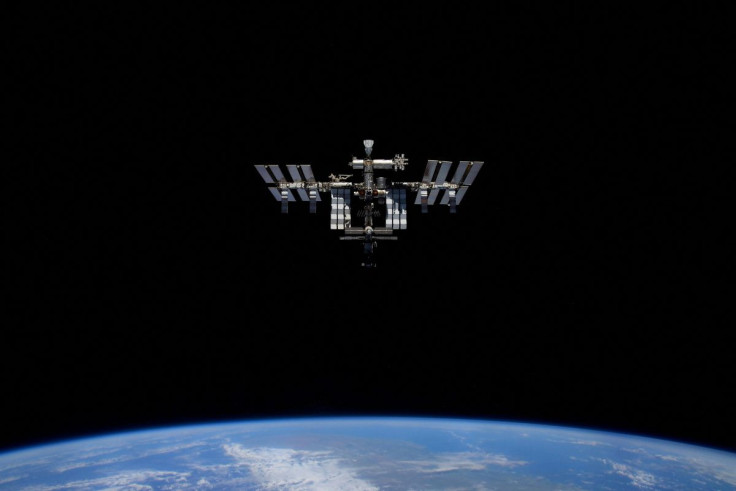Leak In Second Russian Spacecraft Also From 'External Impact': Roscosmos
KEY POINTS
- The Progress 82 (MS-21) experienced a leak earlier in February
- Roscosmos investigation determined 'external impact' as the cause
- This was also the cause of the Soyuz leak back in December
Two Russian spacecraft aboard the International Space Station (ISS) had leaks within a short span of time. The more recent leak was reportedly also caused by an "external impact," Russian authorities said this week.
It was just in December when a spacewalk was canceled due to a leak in the Soyuz spacecraft. On Feb. 11, a leak was also detected on the spacecraft named Russian Progress 82, also known as Progress MS-21. NASA and Roscosmos worked together to figure out the source of the leak.
Roscosmos provided the preliminary results of the investigation Tuesday. The agency reportedly conducted a "detailed photo and video survey" of the spacecraft after it undocked from the ISS on Feb. 18, and determined that the leak was caused by an "external impact" just like what happened with the Soyuz back in December. The agency even shared photos of the 12-millimeter hole in the external radiator.
Perhaps, noted Arstechnica, this was caused by orbital debris or a micrometeorite.
Roscosmos clarified that the holes were not "registered" during manufacturing nor the preparations for launch, during its flight or docking, according to the Russian state news agency, TASS.
Upon ruling out that the leaks weren't caused by a manufacturing flaw, Roscosmos gave the go-ahead to launch another spacecraft as the replacement. The Soyuz MS-23 will launch Friday and is scheduled to dock at the station Sunday, AP News reported.
The spacecraft is expected to arrive at the ISS a few days later carrying hundreds of pounds of cargo, and it will stay there for months until the scheduled return of cosmonauts Sergey Prokopyev and Dmitri Petelin and NASA astronaut Frank Rubio in a couple of months. They were initially supposed to return in March.
Meanwhile, authorities will continue to pursue the investigation into the recent spacecraft damage.
"Experts continue to analyze the information received. It is also planned to conduct a series of ground experiments to simulate damage similar to what was detected on the Progress MS-21," the agency said. "This will help to finally check all versions and develop measures to counter such threats in the development and production of spacecraft and vehicles."
Also on Tuesday, Roscosmos reportedly announced its participation in the ISS until 2028, according to AP News. This backtracks the previous statements from Roscosmos chief Yuri Borisov that said Russia will leave the ISS by 2024.

© Copyright IBTimes 2025. All rights reserved.






















